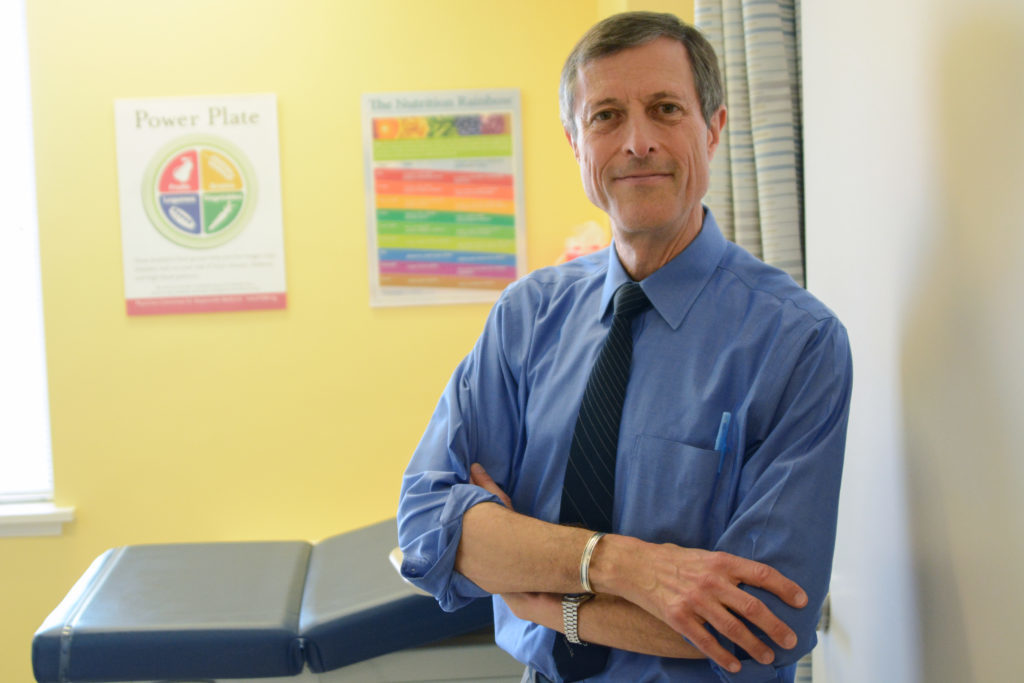A professor in the medical school wants to end the confusion over conflicting nutrition studies.
Neal Barnard, an adjunct professor of medicine, published a report last week explaining the importance of correctly examining past research on a nutritional or dietary topic before drawing broad conclusions. Barnard said headline-grabbing studies on nutrition are often based in incomplete or erroneous information produced when researchers improperly combine previous studies.
“We have been struck by the fact that headlines seem to say one thing one day, and quite the opposite the next day, leading to tremendous confusion,” Barnard said. “Not just among the public, but also among government policymakers.”
Barnard said when done correctly, studies that combine past data and analysis can provide a more inclusive understanding of how to maintain a healthy diet and put together a nutritious dinner plate.
But often these studies conflict each other or draw false assumptions, he said. It was concerning headlines, like one from Time Magazine claiming that butter was a healthier choice than previously thought, that pushed Barnard to write the report.
“The public one day wakes up to a headlines saying that butter is surprisingly healthy, and the next day someone says, ‘oh no, it isn’t really healthy,’ and they have no idea what to believe,” Barnard said.
“In recent years, fewer and fewer people are trying to limit fat in their diet because they have gotten the mistaken notion that it can’t possibly hurt them.”
Barnard said prior to writing the report, he worked to collect examples of previous research that led to controversial and erroneous conclusions about nutrition. He said when researchers attempt to draw conclusions about nutrition by merging studies that used different methods for sampling and collecting data, the results are likely to provide the public with false information.
This study looked at examples of meta-analysis that were given too much precedent in the media despite being conducted poorly, Barnard said.
The results can be harmful because people often have mistaken notions about how healthy their diet actually is, which can lead people to eat harmful foods thinking they are nutritious, he said.
“In recent years, fewer and fewer people are trying to limit fat in their diet because they have gotten the mistaken notion that it can’t possibly hurt them,” Barnard said. “Some people have developed the notion that cholesterol isn’t harmful based on similarly distorted research.”
Barnard said at times the food industry will deliberately use erroneous data to report that their products are healthier than they actually are in hopes of boosting sales.
“Their idea is that you can make eggs look safe, you can make bacon look safe if you do the study in the right way, despite the fact that these foods have genuine risks,” he said.
Barnard said he hopes the report will convince agencies like the U.S. Department of Agriculture and the Department of Health and Human Services to adjust their nutritional guidelines before releasing public dietary recommendations in 2020. The recommendations are released every five years by the Office of Disease Prevention and Health Promotion.
In March, Barnard published his 18th book, “The Cheese Trap,” which examined how cheese can act like an addictive substance that can potentially harm the human body.
“It’s one thing to combine apples and oranges and call it fruit, but then it doesn’t make sense to compare apples, lice and killer whales.”
Barnard collaborated with Walter Willett, a professor of epidemiology and nutrition at Harvard University and Eric Feigl-Ding, a research scientist in the Harvard Chan School of Public Health at Harvard University.
Feigl-Ding said he hopes the report will limit researchers from making false comparisons which drive distorted research on food and diet.
“It’s one thing to combine apples and oranges and call it fruit,” Feigl-Ding said. “But then it doesn’t make sense to compare apples, lice and killer whales because they’re completely heterogeneous and uncomparable.”
Feigl-Ding said incorrect meta-analysis can be particularly troubling when food companies take advantage of the fact that these types of studies don’t require original data, which makes them both easier to conduct and easier to misreport.
“There’s a lot of contradictory information that’s conveyed to the public, and the public is very confused,” he said. “This is a very dangerous area in research because it has such a huge implementation for public health.”





